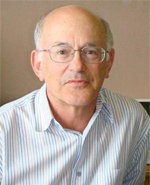
Duffield Professor
Research School of Astronomy and Astrophysics
Australian National University
Professor Ken Freeman is widely acknowledged as the world’s most eminent galactic astronomer. The first to identify the necessity for dark matter in galaxies, he has shaped our current understanding of the dynamics and structure of galaxies. Over the past decade, Professor Freeman has co-established the field of galactic archaeology, where fossil records of stars are used to trace the formation of the Milky Way. His ideas have helped launch the one billion dollar European satellite, GAIA (Global Astrometric Interferometer for Astrophysics). GAIA will work with a purpose-built instrument on the Anglo–Australian Telescope to fossick for stars that will chronicle the history of the galaxy since its birth more than 13 billion years ago. Professor Freeman has supervised more than fifty PhD theses, and he truly is a father of Australian astronomy.
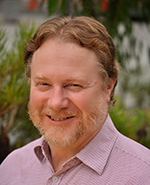
ARC Professorial Fellow and Professor of Inorganic Chemistry
School of Chemistry
The University of Sydney
Professor Lay uses various chemical, spectroscopic, biochemical and cell biology techniques to understand the mode of action and toxicities of metal-containing anti-cancer, anti-inflammatory, and anti-diabetic drugs and supplements; and to provide fundamental insights into understanding the biochemistry of cardiovascular diseases, cerebral malaria, and meningitis.
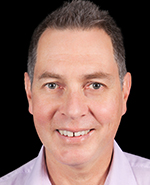
School of Mathematical Sciences
University of Technology Sydney
Matt Wand’s main research focus is non-linear statistical models and methodology for high-dimensional and complex data, in the face of rapid technological change. Much of this research incorporates ongoing developments in Machine Learning. His contributions are multifaceted and involve applications, theory, methodology and publicly available software. Whilst most of Wand’s research is generic, areas of application that have driven some his research include public health, computational biology and the natural environment.
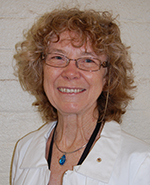
School of Mathematics and Statistics
The University of Western Australia
Professor Cheryl Praeger has transformed our understanding of groups acting on large systems, producing new theories, algorithms and designs that have advanced every field that exploits the symmetry of large systems. Her research has led to significant new directions taken up by mathematicians internationally. Her algorithms have enhanced powerful computer algebra systems which have transformed research and teaching of algebra.
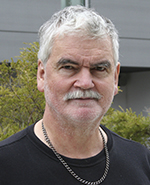
School of Earth Sciences
University of Melbourne
The continental crust is a patchwork of metamorphic rocks transformed deep beneath the Earth’s surface. Understanding the physical conditions in which such metamorphic rocks form is the main focus of Professor Roger Powell’s research. Through the application of the principles of equilibrium thermodynamics to mineral systems he has provided both the methodological framework and the computer software that allows metamorphic geologists to recover the formation conditions of metamorphic rocks. using equilibrium thermodynamics, mathematics and statistics
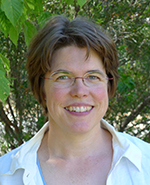
ARC Future Fellow
Research School of Biology,
Australian National University
Ulrike Mathesius is investigating how soil microbes shape the plant. She developed and applied techniques at a molecular, cellular and whole plant level to define mechanisms that symbiotic and pathogenic organisms use to manipulate plant development. A central idea of her work is that microbes have ‘hijacked’ plant signalling pathways for their own purposes. This has implications for utilising microbes to alter crop plant performance and for trying to develop nitrogen-fixing symbioses in non-legumes.
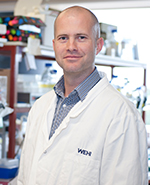
Cancer and Hematology Division
The Walter and Eliza Hall Institute of Medical Research
Dr Benjamin Kile is a molecular geneticist workingon blood cell formation and function, particularly as it relates to haematopoietic stem cell development, leukaemogenesis and inflammation. His group has shed new light on the mechanism by which blood platelets are produced, how their life cycle is regulated, and the impact cancer chemotherapy has on these processes. They have also elucidated the critical role of the potent human oncogene ERG in stem cell function and the development of leukaemia. This work has paved the way to an understanding of how ERG promotes cancer growth, and ultimately, to the identification of new entry points for cancer therapies.
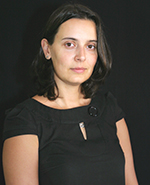
ARC Future Fellow and Associate Professor
Western Australian Institute for Medical Research
Professor Filipovska has made significant contributions to the field of human mitochondrial gene expression. She has developed new technologies to investigate mitochondrial nucleic acids and the roles of proteins that regulate the expression of genes encoded on the mitochondrial DNA. Furthermore she has discovered several mitochondrial proteins that are important for energy production and consequently cell health. She has developed new tools to modulate mitochondrial gene expression and is using them currently as potential therapeutics for the treatment of diseases caused by mutations in the mitochondrial genome.
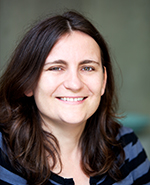
Senior Lecturer
Climate Change Research Centre
The University of New South Wales
Dr Lisa Alexander's research has focused on our understanding of how climate extremes are changing globally and over Australia. Her key contributions, with marked policy relevance, include providing convincing evidence that future changes in the frequency and intensity of heatwaves in Australia will be strongly dependent on the amount of anthropogenic greenhouse gas emissions.
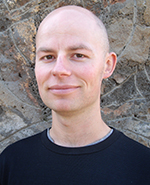
Australian Research Council Future Fellow
School of Geosciences
Monash University
Associate Professor Wouter Schellart has provided fundamental understanding on the evolution and dynamics of the solid Earth. His research breakthroughs have resulted in the development of a new global theory of Earth Dynamics, describing how the size of subduction zones affects the Earth's evolution and geodynamics. The theory explains several fundamental geological observations including the variety in velocity of the tectonic plates and their boundaries, the curvature of deep-sea trenches and volcanic island chains, and the formation of backarc basins and Cordilleran mountains.
His work has quantified energy dissipation and flow patterns in the mantle, has identified a Global Terrestrial Reference frame for plate tectonics and provides new understanding for the geological evolution of the Southwest Pacific, Western North America and East Asia.
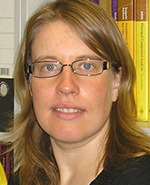
ARC Queen Elizabeth II Fellow
Department of Mathematics and Statistics
University of Melbourne
Dr Delaigle's has made influential contributions to contemporary statistical problems, including deconvolution, regression with measurement errors, functional data analysis, analysis of high dimensional data, group testing, and a wide variety of contributions to function estimation. She is remarkably adept at transforming complex and highly abstract methods into easy to understand concepts, and at developing fully applicable techniques that work in a wide variety of settings. An advantage of her approach to developing methodology is that her techniques apply at once to many practical problems, in both the biological and physical sciences.
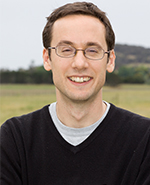
Centre for Astrophysics & Supercomputing
Swinburne University of Technology
Observations by astronomers over the last fifteen years have produced one of the most startling discoveries in physical science: that the expansion of the Universe, originally triggered by the Big Bang, has begun to speed up. A new map of galaxies, created using Australian telescopes under the leadership of Chris Blake, has produced new evidence that this accelerating expansion is driven by a smooth, diffuse "dark energy" that fills the Universe and overwhelms the normal attractive force of gravity. Associate Professor Chris Blake has helped to develop techniques to measure the properties of dark energy using the acoustic oscillations in the galaxy power spectrum as a standard ruler. These techniques are now commonly applied by cosmologists worldwide.
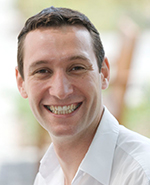
Key Centre for Polymers & Colloids
School of Chemistry
The University of Sydney
Professor Perrier is at the forefront of the design of a wide range of state-of-the-art functional polymeric materials by careful manipulation of their molecular structure. These materials have a wealth of applications, from commercial products in the personal-care industry to health and medicine. His research considers the environmental and social impacts of both the materials and the chemical processes by which they are prepared, including sustainable processes for the synthesis of polymers and 'green' materials with a low impact on the environment.
© 2026 Australian Academy of Science